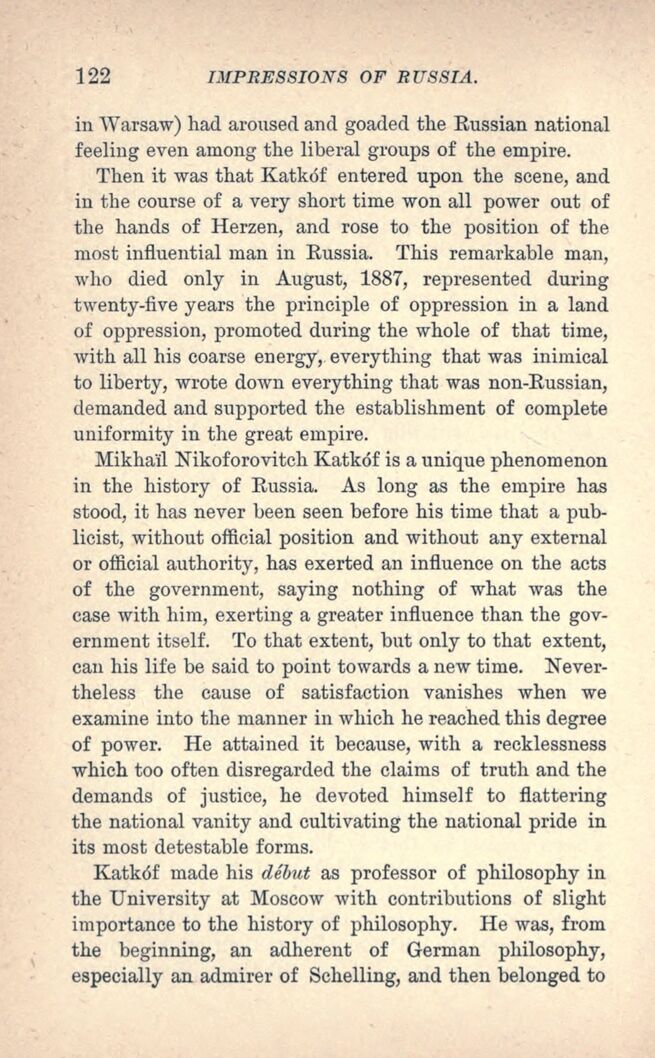
Full resolution (JPEG) - On this page / på denna sida - VII

<< prev. page << föreg. sida << >> nästa sida >> next page >>
Below is the raw OCR text
from the above scanned image.
Do you see an error? Proofread the page now!
Här nedan syns maskintolkade texten från faksimilbilden ovan.
Ser du något fel? Korrekturläs sidan nu!
This page has been proofread at least once.
(diff)
(history)
Denna sida har korrekturlästs minst en gång.
(skillnad)
(historik)
in Warsaw) had aroused and goaded the Russian national
feeling even among the liberal groups of the empire.
Then it was that Katkóf entered upon the scene, and
in the course of a very short time won all power out of
the hands of Herzen, and rose to the position of the
most influential man in Russia. This remarkable man,
who died only in August, 1887, represented during
twenty-five years the principle of oppression in a land
of oppression, promoted during the whole of that time,
with all his coarse energy, everything that was inimical
to liberty, wrote down everything that was non-Russian,
demanded and supported the establishment of complete
uniformity in the great empire.
Mikhail Nikoforovitch Katkóf is a unique phenomenon
in the history of Russia. As long as the empire has
stood, it has never been seen before his time that a
publicist, without official position and without any external
or official authority, has exerted an influence on the acts
of the government, saying nothing of what was the
case with him, exerting a greater influence than the
government itself. To that extent, but only to that extent,
can his life be said to point towards a new time.
Nevertheless the cause of satisfaction vanishes when we
examine into the manner in which he reached this degree
of power. He attained it because, with a recklessness
which too often disregarded the claims of truth and the
demands of justice, he devoted himself to flattering
the national vanity and cultivating the national pride in
its most detestable forms.
Katkóf made his début as professor of philosophy in
the University at Moscow with contributions of slight
importance to the history of philosophy. He was, from
the beginning, an adherent of German philosophy,
especially an admirer of Schelling, and then belonged to
<< prev. page << föreg. sida << >> nästa sida >> next page >>